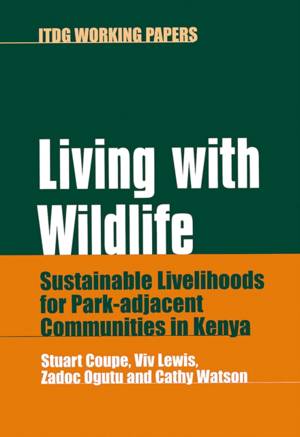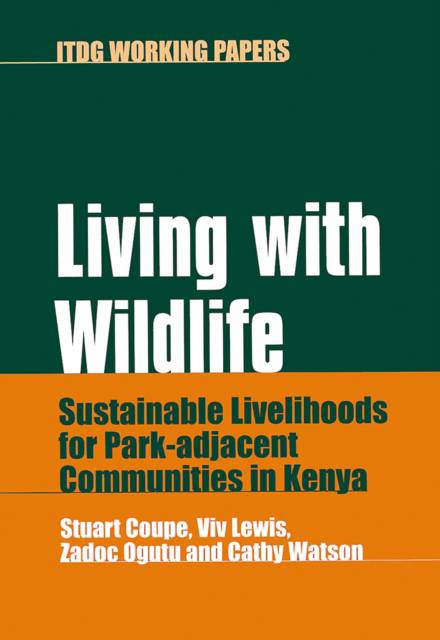
- Afhalen na 1 uur in een winkel met voorraad
- Gratis thuislevering in België vanaf € 30
- Ruim aanbod met 7 miljoen producten
- Afhalen na 1 uur in een winkel met voorraad
- Gratis thuislevering in België vanaf € 30
- Ruim aanbod met 7 miljoen producten
Zoeken
Living with Wildlife
Sustainable Livelihoods for Park-Adjacent Communities in Kenya
Stuart Coupe, VIV Lewis, Zadoc Ogutu
€ 16,95
+ 33 punten
Omschrijving
Conflicts over land use exist all over the world. In semi-arid parts of Africa, for example, pastoralists have by no means the same interests as settled farmers, lodge/safari company operators and tourists. Moreover, these conflicts of interest are likely to intensify if rural poverty and dependency on land increases. Building on ten years working with pastoral communities, IT carried out action research in Kenya with two communities for whom wildlife management issues are a matter of daily life. The research found very little trade off for these communities in terms of enhanced opportunities derived from local wildlife management systems. Many complex cultural and social issues are raised by a shift to cultivation and other new livelihood strategies for traditionally pastoralist communities, none of which currently promote beneficial interactions with wildlife conservation. This Working Paper presents detailed analysis of the two case studies and then addresses the question of whether the problematic situations which emerge can be addressed by improved management of interactions between the stakeholders, or whether in fact the dilemmas faced are part of a deeper structural conflict of interests which the more optimistic win-win literature on communities and wildlife management in Africa has obscured.
Specificaties
Betrokkenen
- Auteur(s):
- Uitgeverij:
Inhoud
- Aantal bladzijden:
- 48
- Taal:
- Engels
- Reeks:
Eigenschappen
- Productcode (EAN):
- 9781853395376
- Verschijningsdatum:
- 15/12/2002
- Uitvoering:
- Paperback
- Formaat:
- Trade paperback (VS)
- Afmetingen:
- 154 mm x 273 mm
- Gewicht:
- 213 g

Alleen bij Standaard Boekhandel
+ 33 punten op je klantenkaart van Standaard Boekhandel
Beoordelingen
We publiceren alleen reviews die voldoen aan de voorwaarden voor reviews. Bekijk onze voorwaarden voor reviews.











